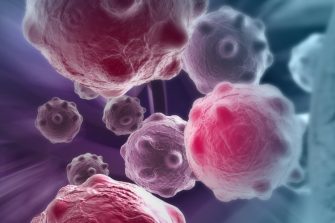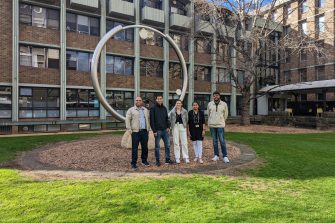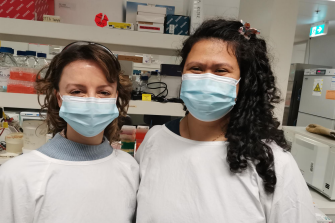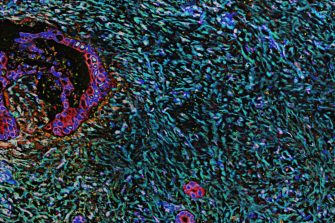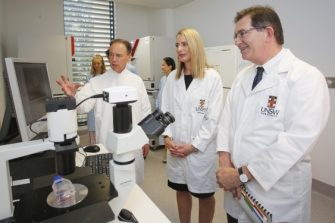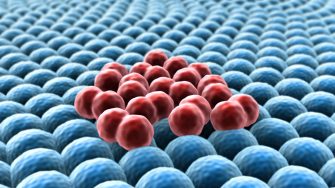
We conduct research to benefit people throughout their cancer journey – from prevention through treatment, survivorship support and palliative care. The School of Clinical Medicine’s research into cancer seeks to improve the outcome of high mortality cancers, for which current treatments are ineffective.
Our research benefits people at all stages of their cancer experience – from prevention through to treatment, with survivorship support and palliation. Our vision is to improve the lives of all people impacted by cancer by delivering evidence-based practice in diagnosis, intervention and support.

